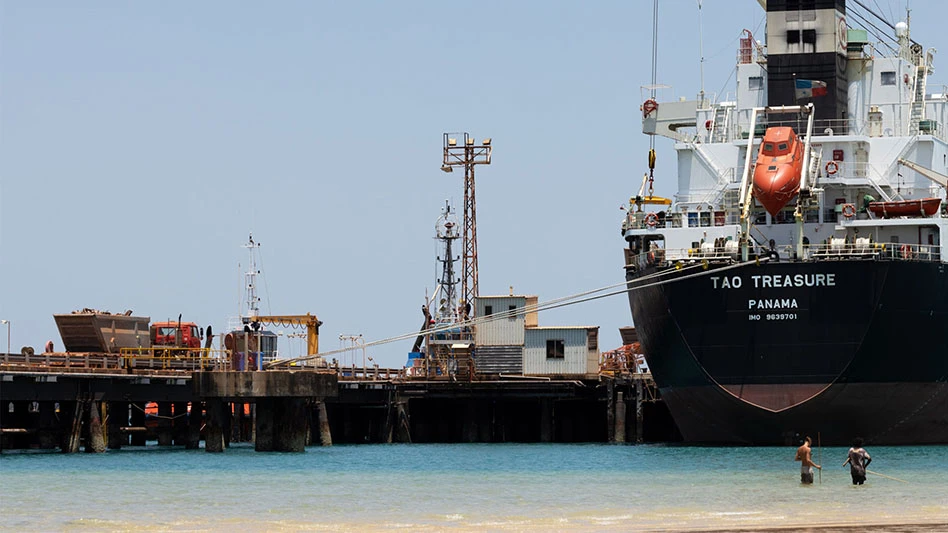
Photo courtesy of Rio Tinto
In Australia’s Northern Territory, mining firm Rio Tinto says it is undertaking the largest demolition project in that nation’s history at the site of its former Gove alumina refinery site.
At the sprawling complex near Nhulunbuy, Australia, Rio Tinto has now begun shipping out what it says is the equivalent of 21 Eiffel Towers worth of ferrous scrap for recycling.
The demolition is part the company's broader closure program at its Gove operations, where bauxite mining is expected to cease completely later this decade.
The first scrap shipment of about 15,000 metric tons of steel scrap, recently left the Gove wharf for a mill in Asia, where Rio Tinto says it will be converted into new steel wire, bar and beam products. In total, 142,000 metric tons of ferrous scrap sent in 10 shipments will be exported to Asia from the Gove refinery site.
The company says about 300,000 metric tons of concrete also will be recycled for local road construction and civil engineering projects.
The Gove refinery processed bauxite mined nearby into alumina from 1972 to 2014. In 2017, the decision was made to permanently close the refinery and work began to prepare the site for demolition and remediation, with dismantling activity beginning last year.
“This iconic site holds a lot of memories for the thousands of people who worked here over the last five decades,” Rio Tinto Gove Closure General Manager James Low says. “But even more significant is the immemorial connection that the Gumatj [indigenous] traditional owners have with the land. We are excited to be part of the work that returns the site to them.
“The Gumatj are integral to what we are doing at the refinery. They are the key decision-makers for how the site will be left in the future, including whether infrastructure like the wharfs and warehouses will be handed over for ongoing use. Their business arm is also supplying equipment for the demolition.”
According to Rio Tinto, as well as being a feat in Australia’s history of demolition, the project is also one of the largest underway anywhere in the world currently. The refinery demolition is being led by Liberty Industrial.
“We are very pleased with how this substantial project has been going, with the first of many scrap load outs successfully completed in better-than-expected time," Liberty Industrial Gove Refinery Gove Closure Project Director Anthony Milanich says.
“We look forward to continuing our journey with Rio Tinto and traditional owners, who we consult and work with closely. This close collaboration has helped us find solutions to a number of challenges associated with a project of this size and complexity in a remote location. Liberty is committed to working with local subcontractors and traditional owners in a mutually beneficial way, including through work opportunities and demolition traineeships.”
Regarding the project’s time table, Milanich adds, ”The refinery demolition and remediation project is targeting completion in 2027. Bauxite mining at Gove is planned to continue until later this decade [and] rehabilitation of the broader Gove site will continue into the 2030s.”
Latest from Construction & Demolition Recycling
- Metso’s Lokotrack line turns 40
- Takeuchi adds dealer in Mississippi
- C&D World session preview: A 360-degree view of concrete recycling
- Minebea Intec credits load cells for durability
- Scrap not included in US steel, aluminum tariffs
- CDRA, roofing manufacturers collaborate on redesigned shingle recycling website
- Good Plastic collaborates with Gensler on recycled-content panels
- Lippmann increases dealer presence in Midwest





